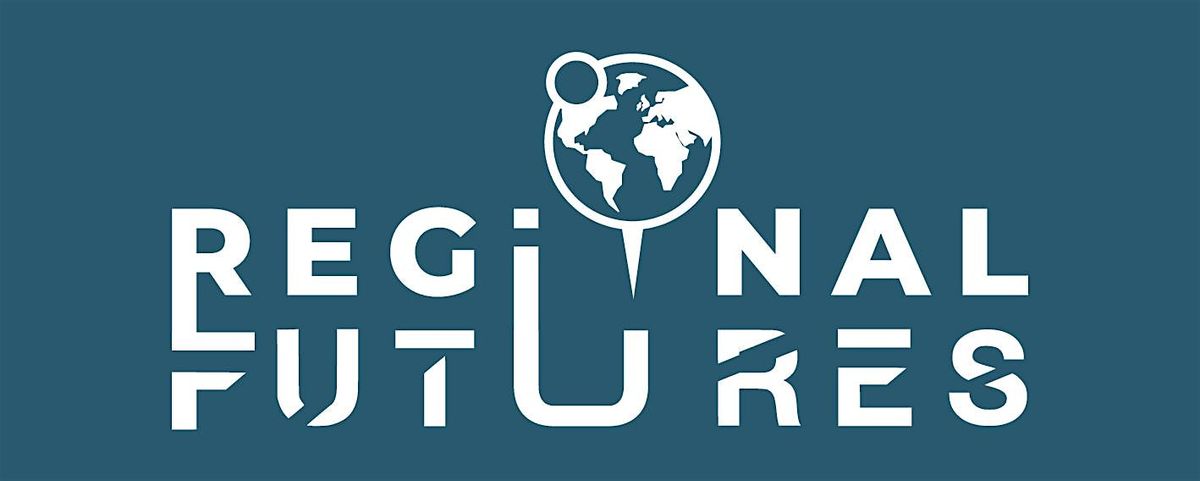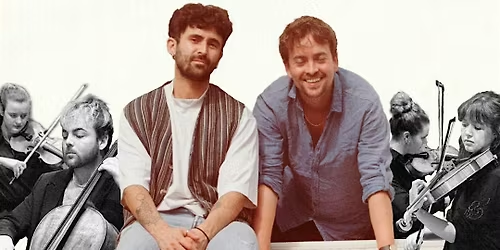
About this Event
In the last two decades, an information revolution in the Global South has profoundly shaped the urbanisation of metropolitan regions. Global and national initiatives to adopt a range of digital, smart and AI-driven technologies in local governments have circulated the claim that opportunities presented by digitalisation will resolve the challenges of urbanisation and create sustainable and equitable futures.
As part of the Regional Futures project, we invite you to join us at an international conference to expand upon our analysis of the dynamics of urbanisation-as-digitalisation. In this conference, we will collectively examine how digitalisation produces new territories for metropolitan urbanisation and how state and non-state actors assist, negotiate, contest, and disrupt these regional futures. The Regional Futures research team brings cases from the peripheries of metropolitan regions in India, Kenya, and Mexico, and we seek to explore how digitalisation, urbanisation, and related dynamics unfold in other contexts in the Global North and South.
Confirmed keynote Speakers
- Rob Kitchin (University of Maynooth)
- Simon Marvin (University of Sheffield)
- Nancy Odendaal (University of Basel/University of Cape Town)
- Ursula Rao (Max Planck Gesellschaft)
- Pontus Westerberg (Teaching Public Service/UN-Habitat)
The Regional Futures conference will be structured around three key questions:
1. How does digitalisation ensure the management, shaping, and capture of new territories for regional urbanisation?
Where are the new territories of this digitalising state? As Elden argues, territory is best understood ‘through an examination of the relation of the state to the emergence of a category of space’ (Elden, 2010). As a political technology, territory thus also refers to the terrain of municipal power and governance charting the boundaries and borders of urbanisation and metropolitan expansion through digitalisation. The first theme of conference will explore the territorialisation of the ‘digitalising state’ (Datta, 2023) – in which technologies, infrastructures and systems of measuring, visualising, and representing new frontiers of urbanisation are solidified in peri-urban regions as targets of new metropolitan expansions.
By focusing on the 'digital turn' in global, national and local urbanisation initiatives (Datta, 2018), we aim to rethink the terrain of territorial politics through the transformation of state spaces and the governance of information infrastructures. Here, we strive to contribute to understanding the governance of regional urbanisation through the governance of territorial information. On the one hand, digitalisation in local governance reduces the cognitive distance between state bureaucracies and hitherto unmapped territories. Still, on the other hand, it increases the contestations and conflicts over historically marginalised territories and regions. While a key tool of the state’s territorial agenda has been to automate urbanisation through digitalisation, creating polycentric and agglomeration economies with innovation and entrepreneurialism at the heart of their growth, this has meant opening up new peri-urban regions that were largely informal, agricultural or Indigenous economies for territorial expansion, and incorporate them in new futuristic masterplans through land appropriation, rezoning and re-categorisation.
2. How does the ‘digitalising state’ drive the need for new technologies and networks of ‘seeing’?
In this theme, we will focus on how the ‘material infrastructures of documentation’ (Hull, 2012, p. 255) – files, permits, memos, letters, lists, cadastral maps, etc – are transformed into ‘spatial knowledge’ (Baud et al., 2014) – geospatial maps, dashboards, platforms, centralised and integrated systems – and how these hybrid infrastructures of information circulate through state and non-state actors to produce regional futures. While paper has its own materiality and socio-technical dynamics, transferring territorial information from paper to digital formats also means developing new infrastructures for storage, retrieval, quality control, data assurance and secure transmission (Datta and Muthama, 2023). There are several challenges to the digitalisation of land and property records due to mutilation or missing paper documents, customary land occupation, multiple claims of the same property, the mismatch between paper and geospatial (GIS) information/maps and poor digital capacity of municipal officials. Paying attention to a diverse range of information infrastructures moves away from the continued focus on the technological aspect of information in smart urbanism literature.
Unpacking the new technologies and networks of ‘seeing’, we aim to contribute to an understanding of territory as simultaneously digital-informational and material-genealogical entities – manufactured by glitzy imaginations of regional futures through Google Earth and ESRI software while, on the other hand, burdened by the weight of colonial and postcolonial paper bureaucracies and customary claims to land. How does territorial information on paper counter the processes of digitalisation? How does digitalisation de-subjectify the marginal subjects of territory? We hope that exploring these questions will contribute to our understanding of the governance of information in the digital era, particularly in how information infrastructures become key mediators of urbanisation and territorial politics.
3. How do marginal communities use technologies to negotiate, adapt, contest and disrupt urbanisation?
The third theme will focus on the contestations that emerge when digitalised maps of the future do not correspond to the ground realities in the territories that are visualised and produce imminent evictions and precarity for marginal populations in the informational peripheries (Datta and Hoefsloot, forthcoming 2025). Contestations may emerge due to issues related to informal ownership of land, jurisdictional boundaries of municipal wards that impact services and infrastructure access to citizens, or disjuncture between paper documents held by residents and geo-spatialised information in municipalities.
Collectively, we aim to radically reimagine the terrain of urban politics in the future through the constraints and limitations imposed by the digitalising state. It will contribute to understanding how earlier systems of extra-legal manipulations, political patronage and customary occupation have transformed with the potential visibility to the digitalising state. Our concern is that while current scholarship has focussed quite heavily on its impacts on citizenship and marginalisation, there needs to be more understanding of how marginal groups support, challenge or disrupt the increasing appropriation of their spaces within digitalised maps of the future. What kinds of territorial information is produced by marginalised communities? How do municipalities govern or bypass territorial contestations? How do local governments accommodate the hybrid paper and digital information infrastructures produced by citizens and non-state actors? And most importantly, whose interests do these information infrastructures serve?
We hope to collaboratively explore these complex issues and gain further insight into the plural and diverse futures of metropolitan regions.
For more information regarding the event and to view the conference schedule and book of extracts, please visit the link here.
We are pleased to announce that we have an extremely limited number of tickets available! Tickets will be allocated on a first come, first serve basis. Once tickets are gone, they are gone so do grab them whilst you still can! To book tickets, please visit the link .
*Please note places will only be confirmed once paid via the payment link above.*
Event Venue & Nearby Stays
Mary Ward House, Tavistock Place, London, United Kingdom
GBP 0.00












